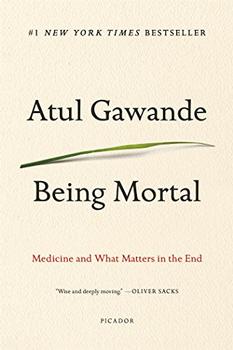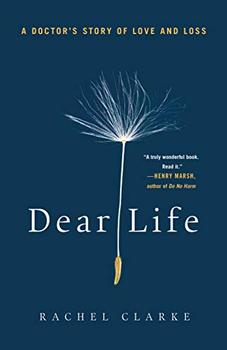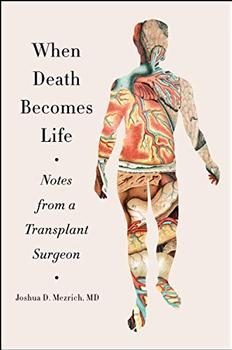Summary | Excerpt | Reading Guide | Discuss | Reviews | Beyond the book | Read-Alikes | Genres & Themes | Author Bio

Critics' Opinion:
Readers' Opinion:
First Published:
Oct 2014, 304 pages
Paperback:
Sep 2017, 304 pages
 Book Reviewed by:
Book Reviewed by:
Kim Kovacs
Buy This Book
In Being Mortal, noted author and surgeon Atul Gawande discusses how we age and die, and how medicine has dramatically changed the process over the past fifty years – sometimes for the worse.
He begins his discussion with an illustration of the extent of the problem. "As recently as 1945," he states, "most deaths occurred in the home. By the 1980s just 17 percent did...[T]he experience of advanced aging and death has shifted to hospitals and nursing homes." He consequently finds that people are less familiar with the process and hence are unprepared when they must cope with a loved one's imminent demise. The end result can be that the individual spends the last months or years trying to "fix" health problems that can't be resolved, leading to poor quality of life, or may spend the time miserable and alone in an impersonal, regimented nursing home.
Several factors have led to this situation, in Gawande's opinion. First, many families no longer live close to each other as they once did. Children leave their parents' homes, frequently moving hundreds of miles away, and studies have shown that many parents welcome the renewed feeling of independence having their offspring leaving home provides – a recent phenomenon social sciences call "intimacy at a distance." Gawande states that "[I]n early-twentieth-century America 60 percent of those over age sixty-five resided with a child, by the 1960s the proportion had dropped to 25 percent. By 1975 it was below 15 percent." In addition, family sizes have shrunk, leaving fewer children to care for aging parents, and life expectancies have increased dramatically, meaning that those who choose to take in an aging relative make a much longer commitment and are therefore less likely to shoulder the responsibility.
Doctors have also exacerbated the problem. The author writes, "I learned about a lot of things in medical school, but mortality wasn't one of them...Our textbooks had almost nothing on aging or frailty or dying...The way we saw it, and the way our professors saw it, the purpose of medical schooling was to teach how to save lives, not how to tend to their demise." He contends that doctors are woefully unprepared to talk with their patients about dying. "The waning days of our lives are given over to treatments that addle our brains and sap our bodies for a sliver's chance of benefit...Our reluctance to honestly examine the experience of aging and dying has increased the harm we inflict on people and denied them the basic comforts they most need."
After laying out this current state of affairs Gawande goes on to discuss some of the choices and opportunities Americans have as they age. One such example is of some of the more successful assisted-living facilities which strive to help people maintain their independence and actually may increase both lifespan and happiness in those who take advantage of their programs. Hospice (see 'Beyond the Book') is another aspect he discusses at length, feeling that in many cases it can give people a much better quality of life than they would have had by undergoing procedures with a slim chance of "success."
The author's most important message, though, is about the importance of communication. In addition to doctors' reluctance to broach the issue of death, relatives, too, are often prone to denying the reality that their loved one is dying and grasp at any chance to try to make the person well. Gawande urges his audience to have these difficult conversations, even if they seem harsh or offensive at times, because they're truly the only way to ensure the best outcome for patients and family members. He recounts numerous instances where having a discussion about how one wants to spend one's final days has made a hugely positive difference for both the patient and family - and also instances where not having that conversation has led to substantially more pain and grief for all involved.
The author, an oncologist, elucidates the points he's trying to make with stories about several of his terminally ill patients, as well as by recounting how he and his family dealt with the illness and eventual death of his father. The anecdotes are all poignant yet instructional; they really help readers understand how vital it is to approach end-of-life decisions with honest, frank dialog between all concerned parties – doctors, patients and families.
This book is not for the faint of heart, to be sure. Gawande quotes some pretty depressing facts about what aging does to our bodies, and it isn't a pretty picture. In addition, some of the situations he describes are incredibly sad and may affect more sensitive readers inordinately. And, of course, many people are not comfortable contemplating their own aging and mortality.
Nevertheless, I finished Being Mortal feeling like this is an important book and one that I would be eager to discuss with others. I highly recommend it; although it's nonfiction, it's extremely engaging and should hold the attention of fiction lovers as well as those who prefer books in the social sciences. Most will undoubtedly come away with a new perspective on these important issues.
![]() This review was originally published in The BookBrowse Review in June 2015, and has been updated for the
September 2017 edition.
Click here to go to this issue.
This review was originally published in The BookBrowse Review in June 2015, and has been updated for the
September 2017 edition.
Click here to go to this issue.

If you liked Being Mortal, try these:

by Rachel Clarke
Published 2020
In Dear Life, palliative care specialist Dr. Rachel Clarke recounts her professional and personal journey to understand not the end of life, but life at its end.

by Joshua D. Mezrich
Published 2020
A gifted surgeon illuminates one of the most profound, awe-inspiring, and deeply affecting achievements of modern day medicine - the movement of organs between bodies - in this exceptional work of death and life.





The House on Biscayne Bay
by Chanel Cleeton
As death stalks a gothic mansion in Miami, the lives of two women intertwine as the past and present collide.

The Flower Sisters
by Michelle Collins Anderson
From the new Fannie Flagg of the Ozarks, a richly-woven story of family, forgiveness, and reinvention.

The Funeral Cryer by Wenyan Lu
Debut novelist Wenyan Lu brings us this witty yet profound story about one woman's midlife reawakening in contemporary rural China.
Your guide toexceptional books
BookBrowse seeks out and recommends the best in contemporary fiction and nonfiction—books that not only engage and entertain but also deepen our understanding of ourselves and the world around us.